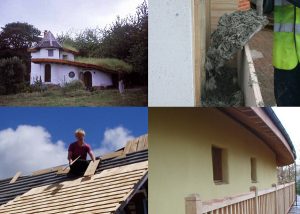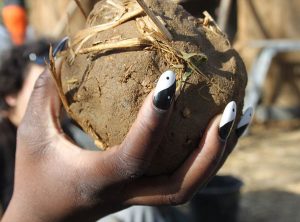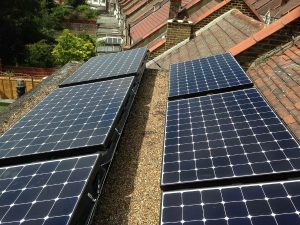Here’s a conversation with Emmanuel Savard, co-founder of a group in Costa Rica that’s looking at providing all the essentials of life – food production, housing and energy – for their town via regenerative, non-extractive, sustainable, community-based exchange and investment models.
Theirs is a really fascinating project, as it encompasses so many of the ‘new economy’ ideas that we espouse at Lowimpact. He told me that he’s watched all of our video interviews with new economy / mutual credit people, and that he’s very interested in setting up trading and investment systems using mutual credit and Chris Cooks’s use-credit obligation ideas.
This is an outline of the conversation (more detail in the video).
The group is called Revive Regenerative Systems (this is a landing page – full website coming soon). They’re based in Nosara, a town of around 10,000 people on the north-west coast of Costa Rica. The roads to Nosara are bad, and so Nosara is a little bit isolated.
They’re interested in two types of ‘new money’ systems for their project:
- Exchange via mutual credit
- Investment via use-credit obligations
Revive is a non-profit, founded last December. They use sociocratic decison-making, and people can come and go as they please. When people join the group, they allocate themselves a role, and become accountable for that role. They have various planned projects, some ongoing, to help Nosara become self-sufficient in the essentials of life – food, water, shelter and energy.
They have investors who have money, who want to invest in the kind of projects that Revive are involved with, they have access to land, and they have people ready to do the work. What they’re lacking is information about the fine print of the agreements required between all stakeholders.
Emmanuel has talked with a lawyer, and has sent him articles by Chris Cook. We’ll set up a meeting with Emmanuel, Chris and Dil Green to talk about the details of setting up a system of use-credit obligations and mutual credit.
They have a project to produce compressed earth bricks with which to build houses. There’s a housing crisis in Nosara. Compressed earth is a sustainable alternative to cement. They want to finance the project via use-credit obligations – in other words, to finance the project with future output. For example, an investor can help set up a renewable energy plant by purchasing future electricity, at a discount (so they could purchase, say, $10k worth of future electricity for, maybe, $7-8k) – this provides the profit for investors, but without interest or inflation (a unit of energy is a unit of energy, now and in the future; or if investment is in food production, a sack of carrots is a sack of carrots, now and in the future).
They’re also looking at setting up a gasification plant, using the same principles. There are 3 sawmills in the town, producing around 6 tonnes of waste wood per day. They intend to collect the waste and gasify it – financing the project by pre-selling the output (electricity generated by the gas, the gas for heating, and biochar as a soil improver). They’re also looking to set up a solar electricity plant.
The electricity can be used by their clients, which include supermarkets and hotels. They won’t be able to sell the electricity themselves. There’s an energy generation monopoly in Costa Rica, and so small-scale generators can’t distribute / sell their electricity directly – regulations require them to sell to the national grid (cheaply), and then users buy back from the grid (expensive). It’s the same problem for small producers in the UK.
The idea is that they will set up a plant and collect the waste to run it, and rent the plant to clients, who will use it to generate electricity for their own use.
There are people with money to invest in Nosara – many of them ex-pats, some from the US, but also from other countries, all over the world. There aren’t many jobs in Nosara, so if you want to live there, you either start your own business, or have an income from outside. Many people have the problem of where to store their money, and with the state of the global economy, secure places to store value are beginning to become scarce. So what better way to store your money than in your community? The investors have the same values as Revive. Costa Rica has a reputation as an environmentally-friendly country. There has been lots of reforestation / eco-tourism etc. Incomers tend to have strong ecological values.
Nosara is a bit of a ‘hippie’ town – there used to be a big yoga retreat centre. Now it’s a surfing town, and it’s growing fast. There’s a housing crisis, and prices have risen astronomically. Rather than divert the wealth generated by this growth to the banks, Revive want to keep it in the community. If ‘all hell breaks loose’ it’s the community that will sustain people.
They’re looking at mutual credit too. A mutual credit scheme plus use-credit obligations will help both schemes. They’re mutually-beneficial. In Costa Rica, people already use an informal kind of mutual credit – exchanging and keeping tabs in their head. At the local school, if you don’t have money to pay for your child, they have a scheme whereby you can volunteer to help the school in exchange for credits to cover school fees. It’s very fertile ground for mutual credit, which is a way to formalise this, and allow people who don’t know each other to trade. It brings scale.
The main barriers that Emmanuel can see are state regulations (a familiar problem for other community-based enterprises).
We’ll set up a meeting with Emmanuel, Dil and Chris to talk about the fine details, and possibly record / blog that too.
Emmanuel can see this sort of thing happening in other towns around Costa Rica. Everything they’re going to be doing will be open sourced, and they will encourage others to follow their example, and learn from their experiences. Their successes can be replicated in other towns and cities – but with each group operating independently, not as a corporate chain. Groups can trade with each other via federated mutual credit schemes (the Credit Commons).
They’re looking for help. Locals can contact them directly. For non-locals, they’re looking for a web developer – let us know if you’re interested, and we’ll introduce you.
























